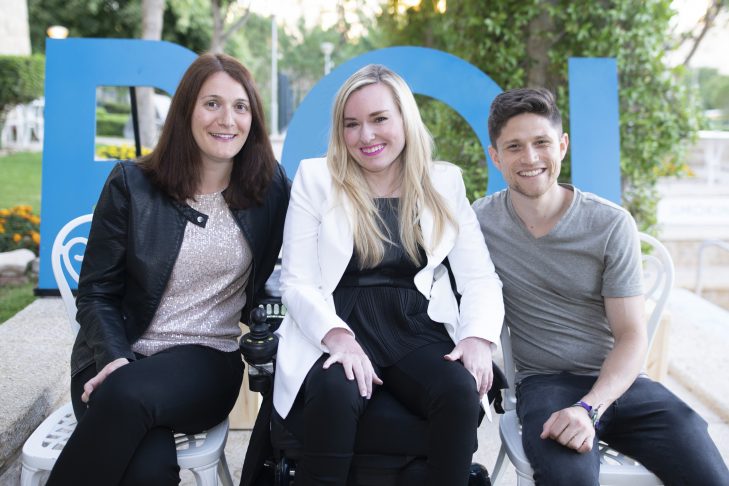An initiative of the Charles and Lynn Schusterman Family Foundation, the ROI Community is made up of young Jewish entrepreneurs, activists and innovators who come together for an annual capstone event in Jerusalem. This year, four Boston-based participants were nominated for the honor and attended the recent 2019 ROI Summit. In conversations with JewishBoston, each of them independently observed that the experience was buoyed by personal interactions with other participants and ongoing group activities. As Mishy Harman, one of the Boston participants, asked, “Where else would I have lunch with a former Belz Hasid—a guy who was one of 17 children—who left religion and now promotes secular studies in yeshivas in Brooklyn?”
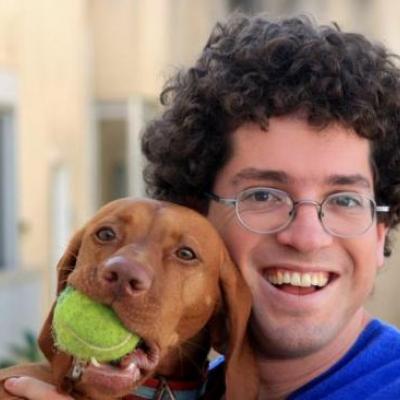
Born and raised in Jerusalem, Harman is a Harvard graduate with a master’s degree in philosophy from Cambridge University and a doctorate from Hebrew University. While Harman is distinguished for his social entrepreneurship—he founded a Boston-based social networking start-up with a presence in a number of countries—he is well known as one of the founders of the podcast “Israel Story.” Described as an Israeli version of “This American Life,” Harman said the radio show, broadcast in both Hebrew and English, is meant “to complicate the normal narratives of Israel. We try to portray an Israel which is not about politics, religion, the occupation or even Israel advocacy, per se. We tell complex human-interest stories that show how real life is here. Israel is a wonderful, beautiful, miraculous place that can also be a horrible and ugly place too. Our goal is to expand circles of conversation through a more nuanced view of the country.”
Harman was initially selected to participate in the ROI Summit in 2013 and returned to the 2019 Summit as an alumnus. For Harman, the personal interactions at the conference have carried the most meaning. “I met people who are passionate about different things I didn’t know a lot about, and that was very refreshing,” he said. “I feel very lucky to be a part of the ROI world. In addition to all kinds of support, more than anything you’re part of this community of inspiring people who end up being positive and significant forces in both the Jewish and secular worlds.”
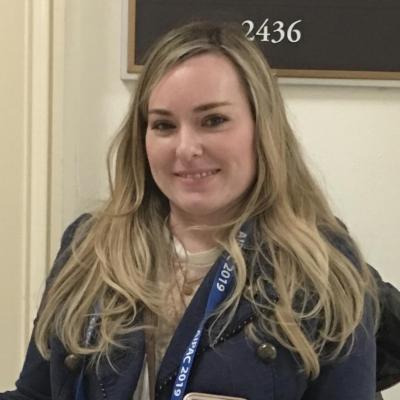
Ariella Barker’s activism focuses on the importance of disability inclusion in nation-wide politics, as well as the Jewish community. An attorney with a background in business, Barker grew up in an evangelical Christian family in North Carolina. Although she never connected with her parents’ brand of Christianity, she still felt a spiritual void in her life. “I missed having spirituality and religion in my life and did a lot of studying and research,” she said.
In her second year of law school, Barker missed her first-semester final exams. That was when she encountered her family law professor, an Orthodox rabbi whose “kindness and generosity had a big impact” on her. Barker went on to take the rabbi’s class in Jewish thought and law. “Jewish law made sense to me,” she said. “It confirmed everything I was looking for.”
In 2007, Barker converted to Judaism and went on to work for a nonprofit in Washington, D.C., that advocates for inclusion. Barker, who has used a wheelchair since childhood, noted that in 2015-2016, as well as this year, she worked with the various presidential campaigns to establish disability policies. In Boston, she is a candidate for a mid-career master’s degree in public administration at Harvard Kennedy School. Her attendance at the ROI Summit came at an ideal time in her career and life in general. “Every single participant I met was an incredible human being working to change the world,” she said. “The community was unlike anything I’ve experienced.”
Barker said one of the most powerful exercises at the summit was to write her obituary. “Writing my obituary was powerful for me,” she said. “I came close to death many times, so it was not theoretical for me. It made me think about the future in a way that was positive and real now that I’m healthy again.”
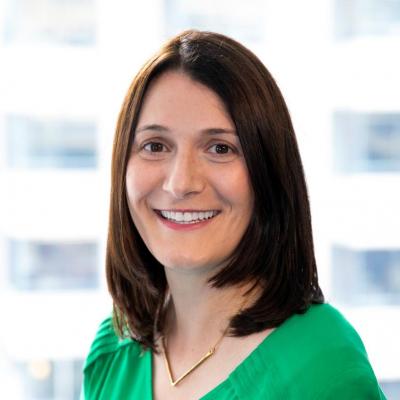
Aviva Klompas, CJP’s associate vice president of strategic Israel engagement, was also impressed with the obituary-writing exercise. “The exercise showed how you could be the master of your own narrative and not be subject to inertia or the winds of change,” she said. “You can chart your own course in this world. It was empowering to think about.”
Klompas, who has a forthcoming memoir about her time as the director of speechwriting for the Israel’s Permanent Mission to the United Nations, was impressed with the challenges that many of her fellow attendees have overcome. “Bios only tell you about someone’s successes,” she said. “Failures overshadow time and attention and heartache. One tends to paper over them. At ROI, people were free and open to talk about that.”
Born in South Africa, Klompas grew up in Toronto and earned a master’s degree in public administration at New York University. At one point, she worked for the Canadian government in various positions that included helping to resettle Syrian refugees in the country. At CJP, Klompas founded a program called “Project Inspire.” The project, which she described as her “passionate pursuit,” was a direct response to what she learned about Israel’s international work when she was at the U.N. She observed that Israel’s partnership with developing countries “is the greatest untold story” of the country. To that end, Project Inspire has thus far taken Boston young professionals to places in Africa, Guatemala and India where Israel helps empower and educate people. “The love that people have in those countries for Israel is palpable,” she said.
As for the ROI Summit, Klompas said it “gave me a lot of insight into the importance of gratitude and generosity. ROI and the Schusterman family are very generous. They demonstrated their gratitude for us, which made me realize that what they did for us is what we can do for other people with space to connect and collaborate.”
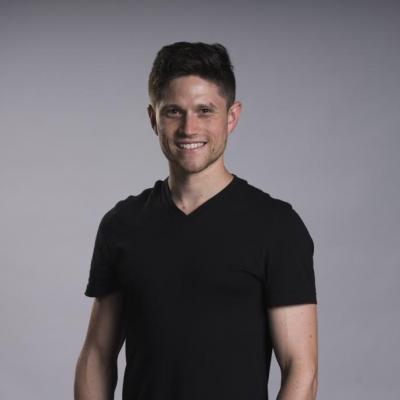
Dean Benjamin, an MBA candidate at Harvard, also hails from South Africa, where he has been involved in a number of social justice projects. Born and educated in Cape Town, Benjamin found an outlet at the ROI Summit to brainstorm about his ongoing activism. “It’s a unique summit in that its ability to attract a huge, diverse group of people brings different industries and focus areas to the table,” he said. Like his fellow Boston attendees, Benjamin felt the summit “gave us a sense of community. It wasn’t just about your cohort, but about joining the whole community.”
Benjamin noted that growing up in post-apartheid South Africa informed his social activism. He was among the first students to begin kindergarten in a democratic South Africa. That was in January 1995, just before Nelson Mandela took office. Benjamin was in a mixed-race class, which later at university influenced him to start preschools for underserved children to level the educational playing field.
Benjamin views his MBA education as “one of two parallel tracks in my narrative. There was my banking career after university and my social entrepreneurship throughout my time in school and beyond. Business school is how I intend to get these two tracks to overlap. I look to for-profit businesses to make good in the world, and to make a difference.”


